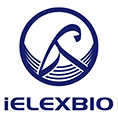E. coli, short for Escherichia coli, is a widely studied bacterium that dwells in the lower intestine of humans and animals. Its unique traits and genetic makeup make it a versatile microorganism for research purposes. In this blog, we will delve into the intriguing E. coli traits in metabolism and nutrient utilization.
E. coli exhibits an extraordinary range of metabolic capabilities, enabling it to adapt to diverse environmental conditions. This bacterium obtains energy through various metabolic pathways, including aerobic respiration, anaerobic respiration, and fermentation. These different approaches allow E. coli to utilize different substrates and generate energy in the absence or presence of oxygen.
One of the key E. coli traits is its ability to utilize a wide variety of sugars as carbon sources. This bacterium possesses specific transporters and enzymes that enable it to efficiently break down sugars like glucose, lactose, and maltose. This proficiency in sugar metabolism makes E. coli a model organism for studying carbohydrate utilization and the regulation of sugar-related metabolic pathways.
E. coli also possesses a remarkable trait in nitrogen metabolism. It can assimilate various nitrogen sources, including ammonium, nitrate, and amino acids, for the production of essential biomolecules like proteins and nucleic acids. This adaptability allows E. coli to survive in environments with different nitrogen availability and utilize various nitrogen sources efficiently.
Another noteworthy trait of E. coli is its involvement in nutrient recycling, specifically in the gastrointestinal tract. E. coli plays a crucial role in breaking down complex nutrients derived from the diet and host cells. It ferments undigested carbohydrates and metabolizes the resulting byproducts, which helps in the extraction of valuable energy and nutrients.
E. coli is a bacterium with remarkable traits in metabolism and nutrient utilization. Its versatility in energy generation through different metabolic pathways, ability to break down various sugars, adaptability in nitrogen metabolism, and role in nutrient recycling all contribute to its prominence as a model organism for studying these processes. The extensive research conducted on E. coli traits not only helps us understand the intricacies of microbial metabolism but also has broader implications in fields such as biotechnology and pharmaceutical research.
The study of E. coli traits in metabolism and nutrient utilization provides valuable insights into not just the bacterium itself, but also the fundamental processes that drive all living organisms. As our understanding of E. coli traits continues to grow, so does our appreciation for its significance in various scientific disciplines.
 A Tentative Study on the relevance of HACCP certification and infection control in hospital
A Tentative Study on the relevance of HACCP certification and infection control in hospital
 Environmental Sanitation Microbiology Testing
Environmental Sanitation Microbiology Testing
 Microbiology Test in Food Industry
Microbiology Test in Food Industry
 The Applicability of High-quality Ready-to-use Swab Sampler for Tableware Sampling and Public Places Supplies and Utensils Microorganisms
The Applicability of High-quality Ready-to-use Swab Sampler for Tableware Sampling and Public Places Supplies and Utensils Microorganisms
 Spike Experiment of DNP Culture Media Plate Based on Ice Cream
Spike Experiment of DNP Culture Media Plate Based on Ice Cream

